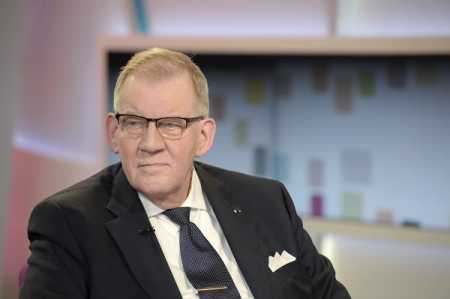Sun, 20 Dec, 2015 01:06:20 AM Quality of legislation drafting deteriorates: Tiitinen FTimes-STT Report, Dec 20
Before becoming the secretary general, he served as the director of the Security Police. Talking to the national broadcaster YLE in its Ykkösaamu (Morning Breakfast) programme on Saturday, Tiitinen said Finnish party leaders were taken by the Security Police “for a discussion,” if it appeared that they were exposed to particular pressures from foreign entities. If necessary, even “lords and ladies” were brought in for a conversation. “The ministers were just told the facts of life,” Tiitinen said. “The most important task of the Security Police was to be a Soviet watchdog in Finland,” he added. “Of all the things targeted at Finland during the Cold War, we were most concerned with those that might hamper Finland’s interests.” The programme also covered the infamous “Tiitinen List,” which consists of persons suspected of having connections with the East German intelligence service Stasi. The list could not be published, according to Tiitinen, because it names those who still may be active in public duties. “If no concrete evidence of negative activities was discovered, the rule of thumb was not to ruin a person’s reputation just because they were on the list,” Tiitinen added. On the other hand, the Security Police also must maintain the trust of other intelligence agencies. At the end of the programme, the programme journalist offered a different “Tiitinen List” to Tiitinen. This was a floor cable distributed by parliamentary security officer Jukka Savola, which read “Top Secret - Tiitinen List.” “That’s fine, too,” Tiitinen said upon receiving the list. He also remarked that the quality of parliamentary legislative drafting has deteriorated. One of the reasons for the deterioration is that individual fact-finders are used more often instead of collegial workgroups. In previous decades, these collegial workgroups were more common in the preparation of legislative projects. “The timetable for presenting new projects seems to have tightened. This combination creates problems with the quality of laws,” he said. The social debate in recent times is, according to Tiitinen, normal, if sharper due to the economic situation.
“There is a need to carry out actions that begin to take effect as soon as possible,” he added.
More News
|
|
Finland Times
| Sunday, 15 February, 2026 |


